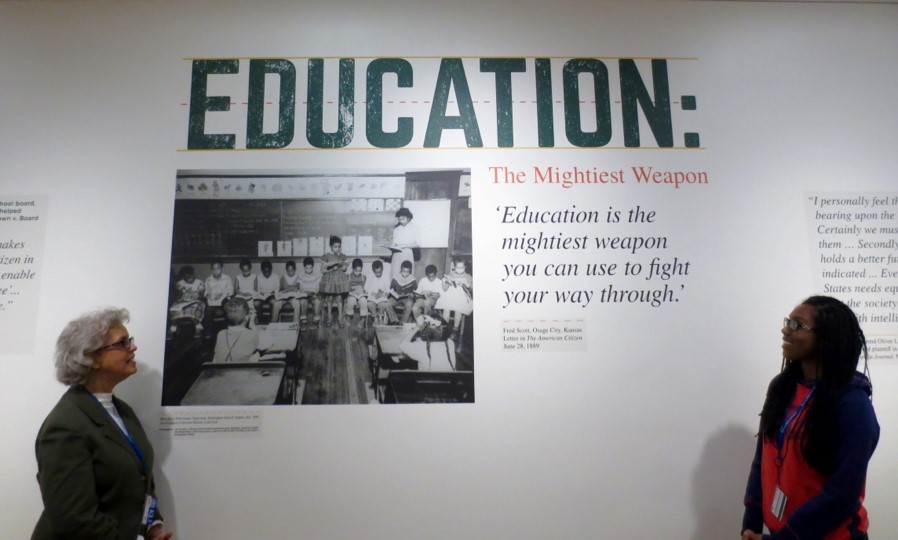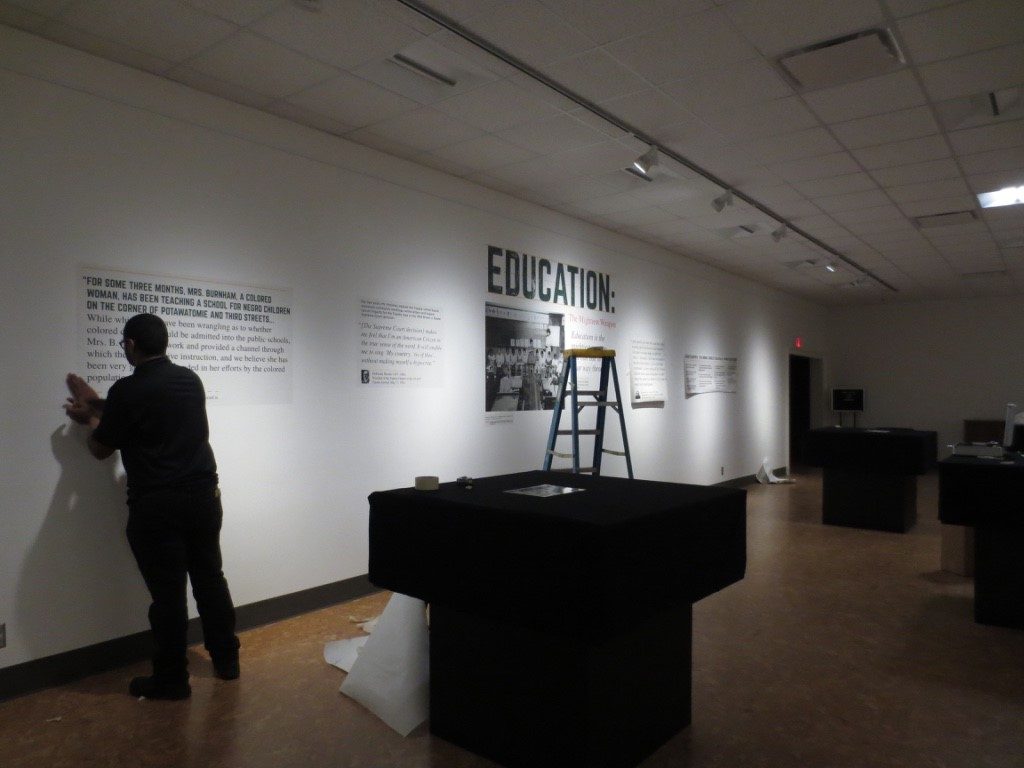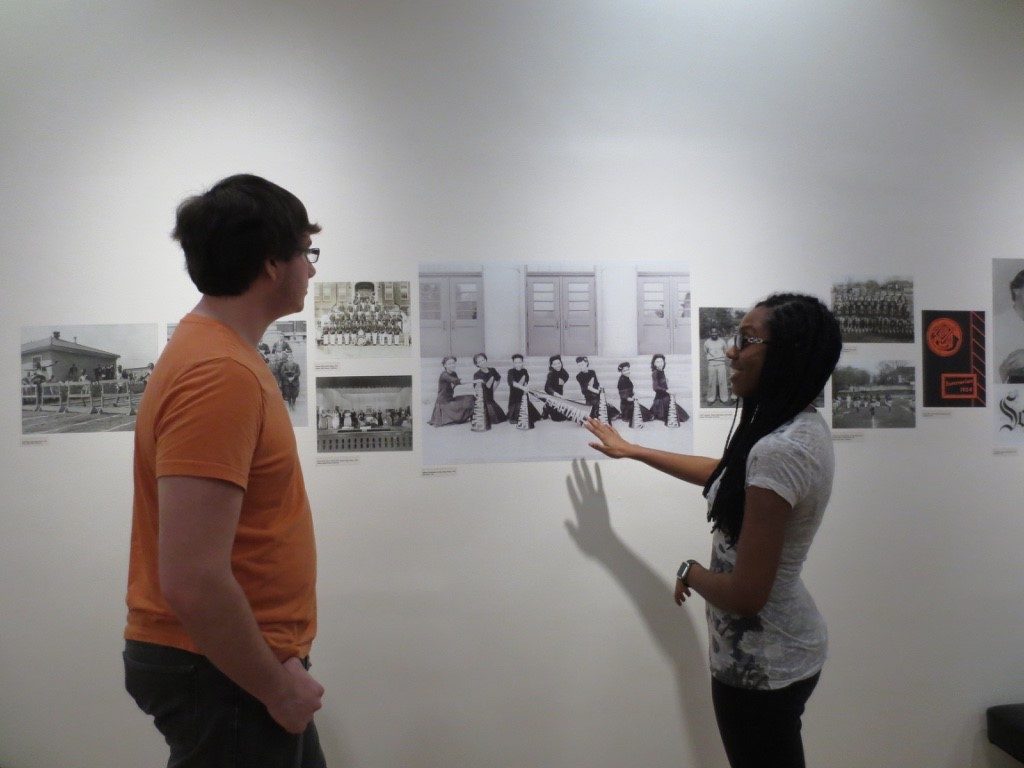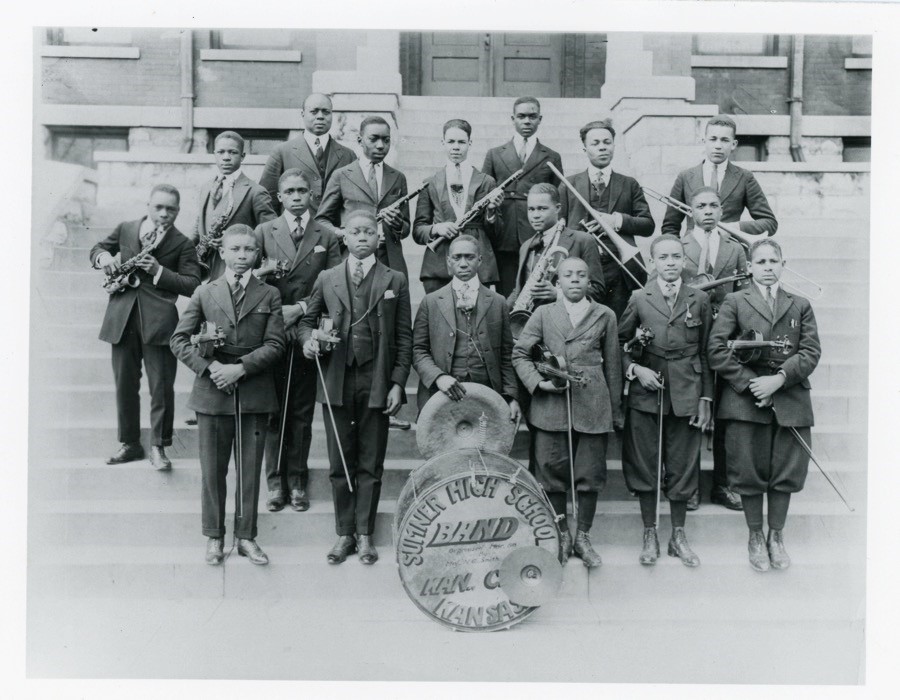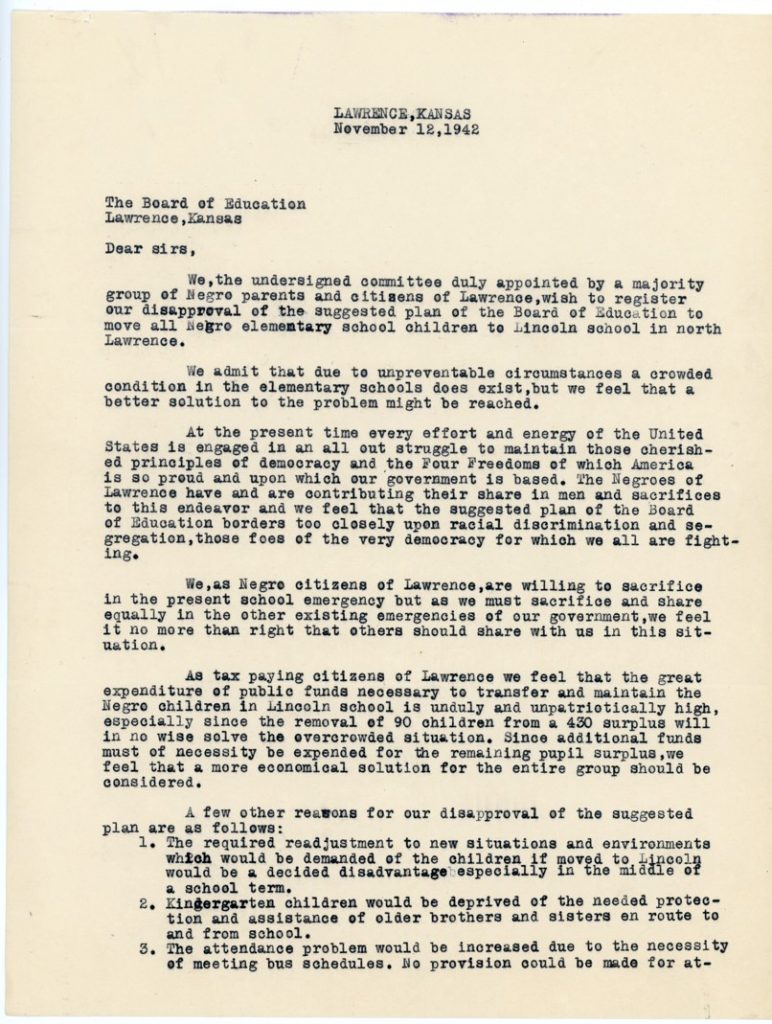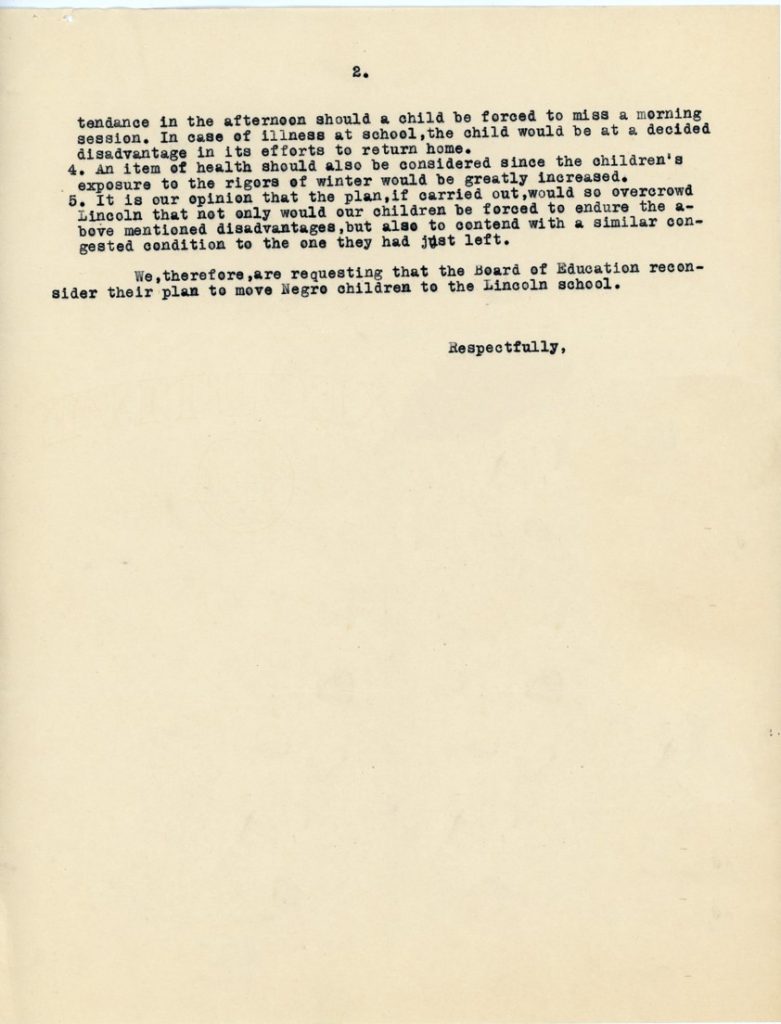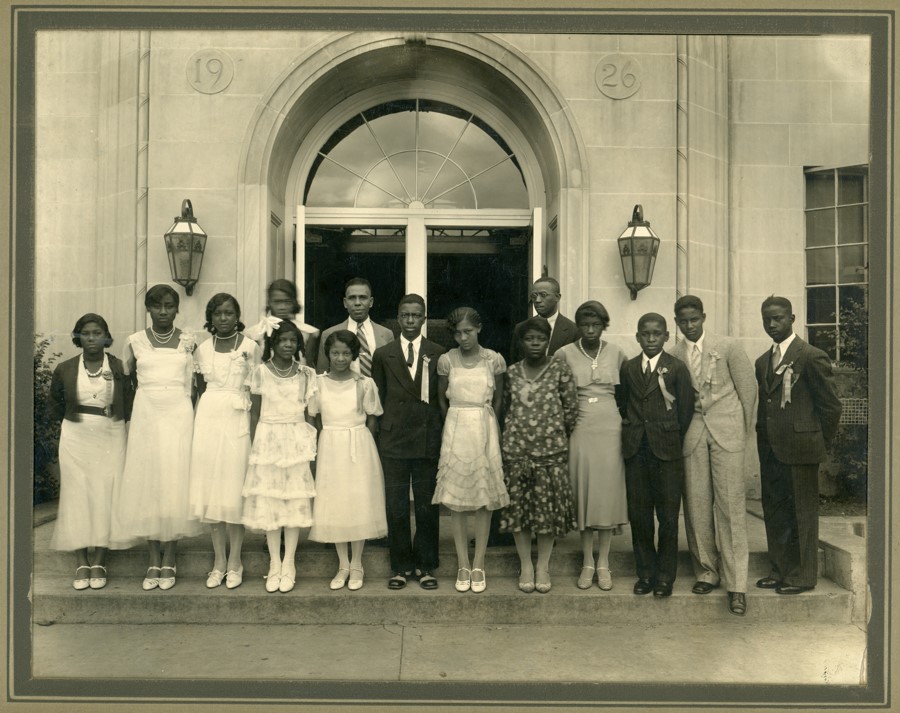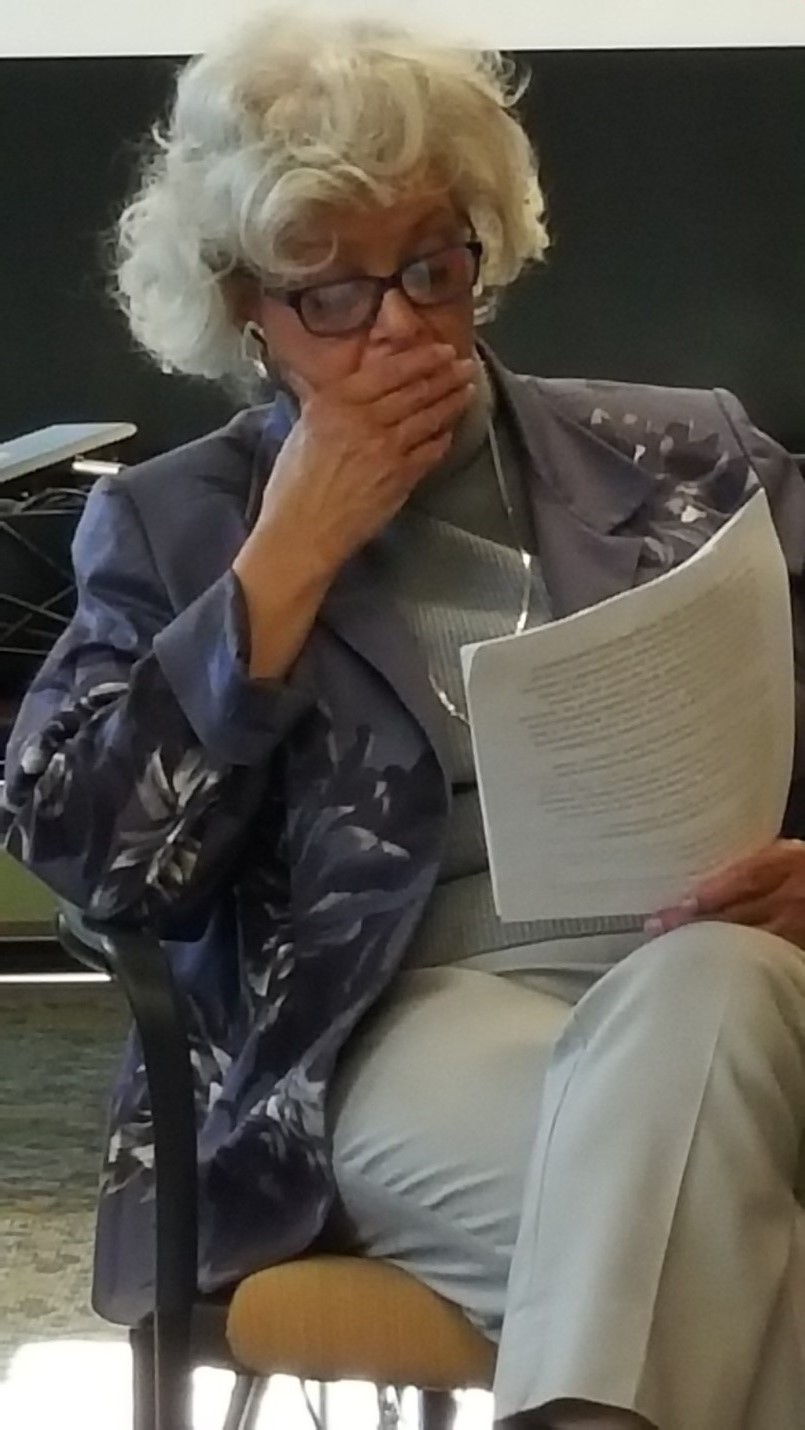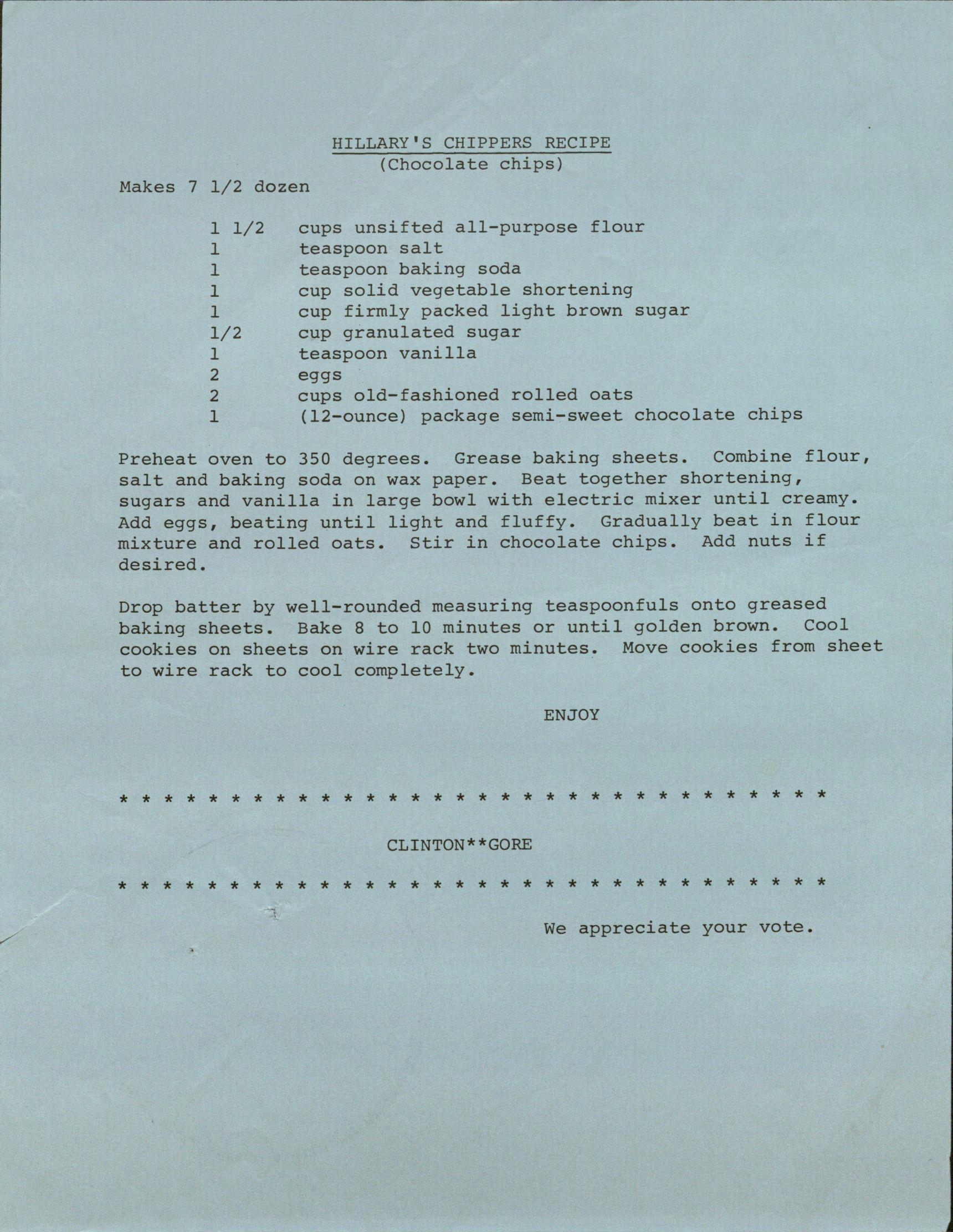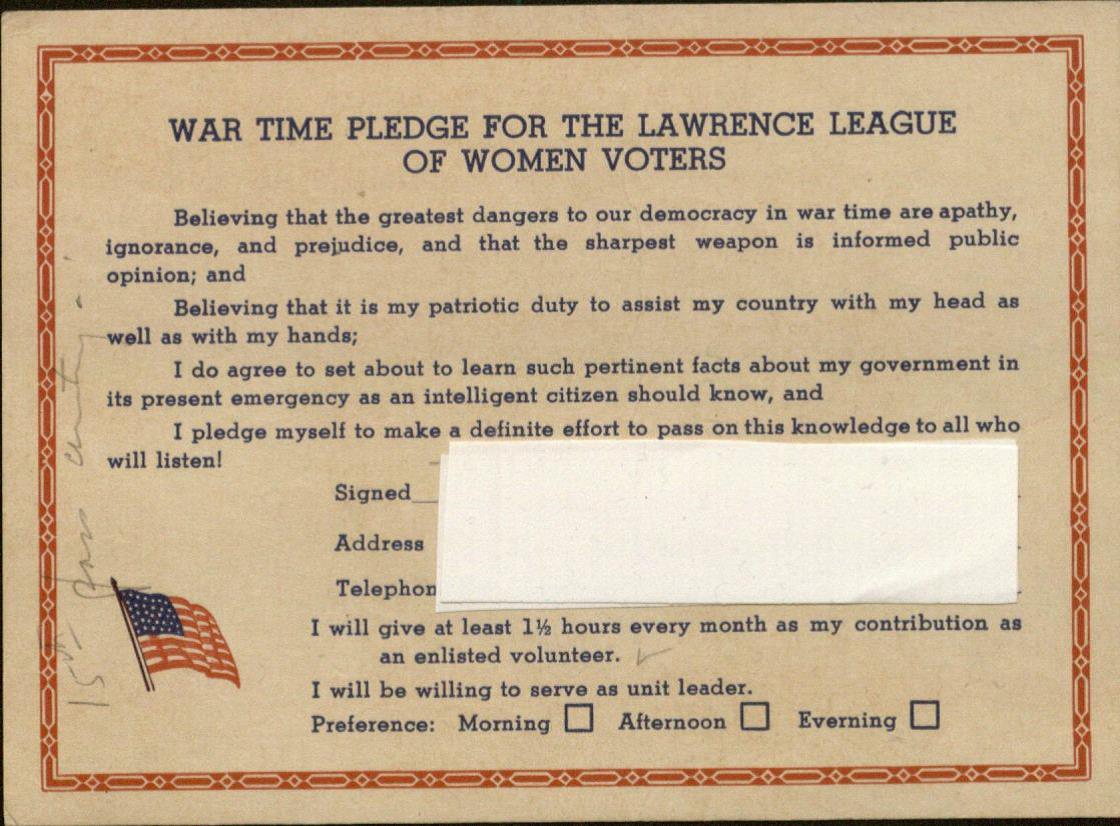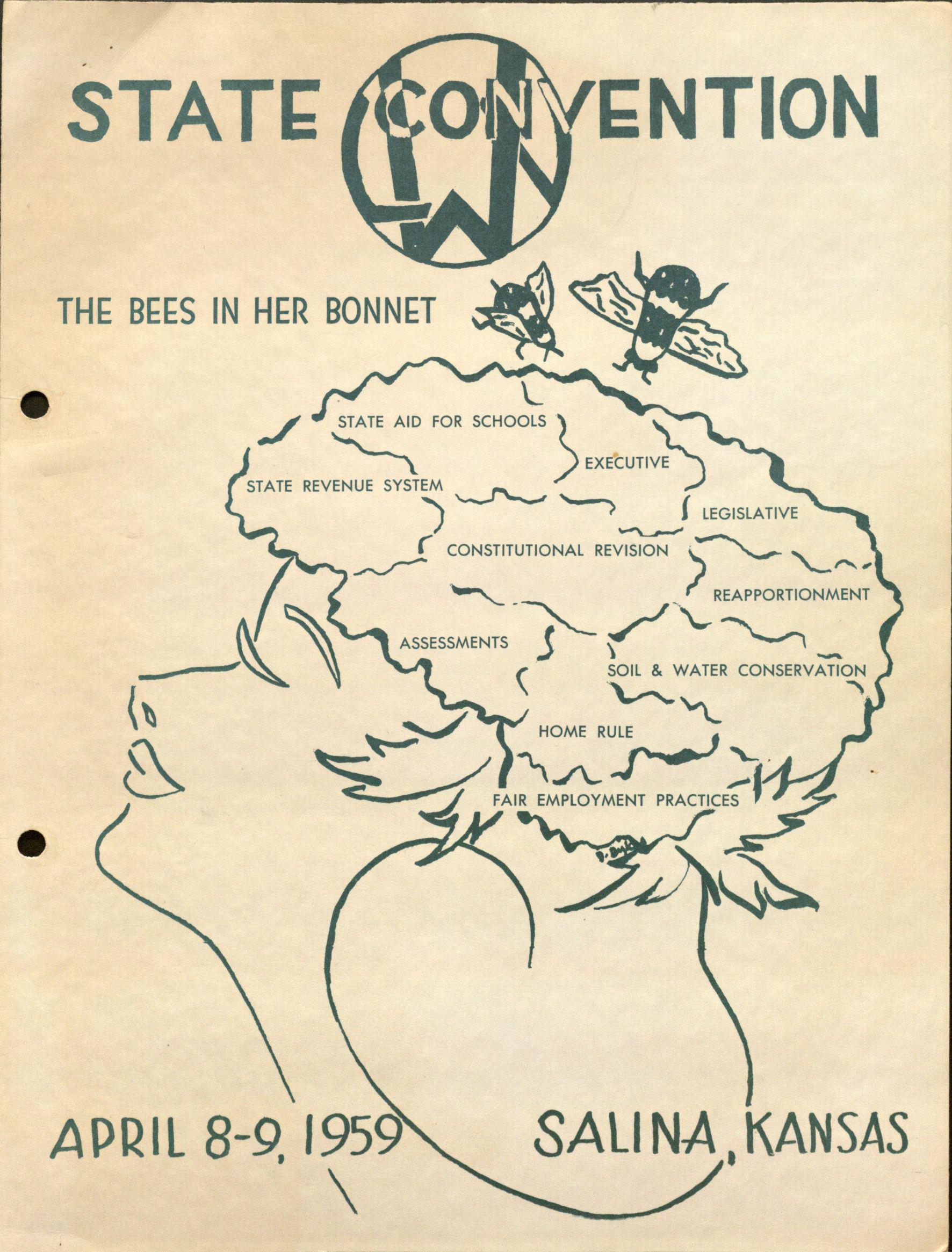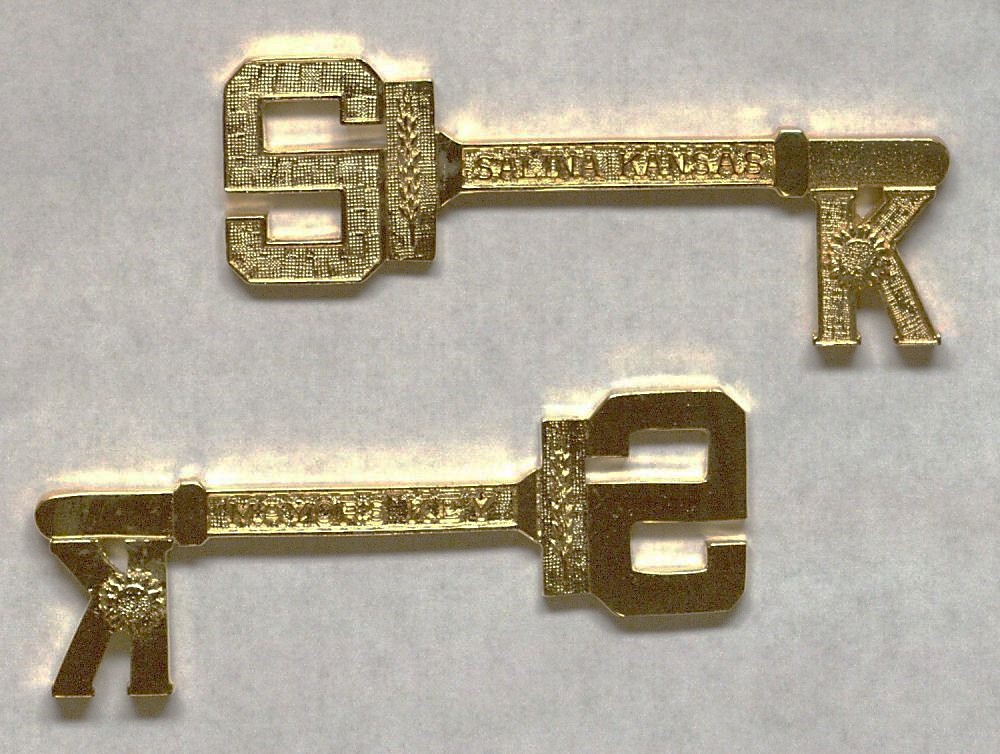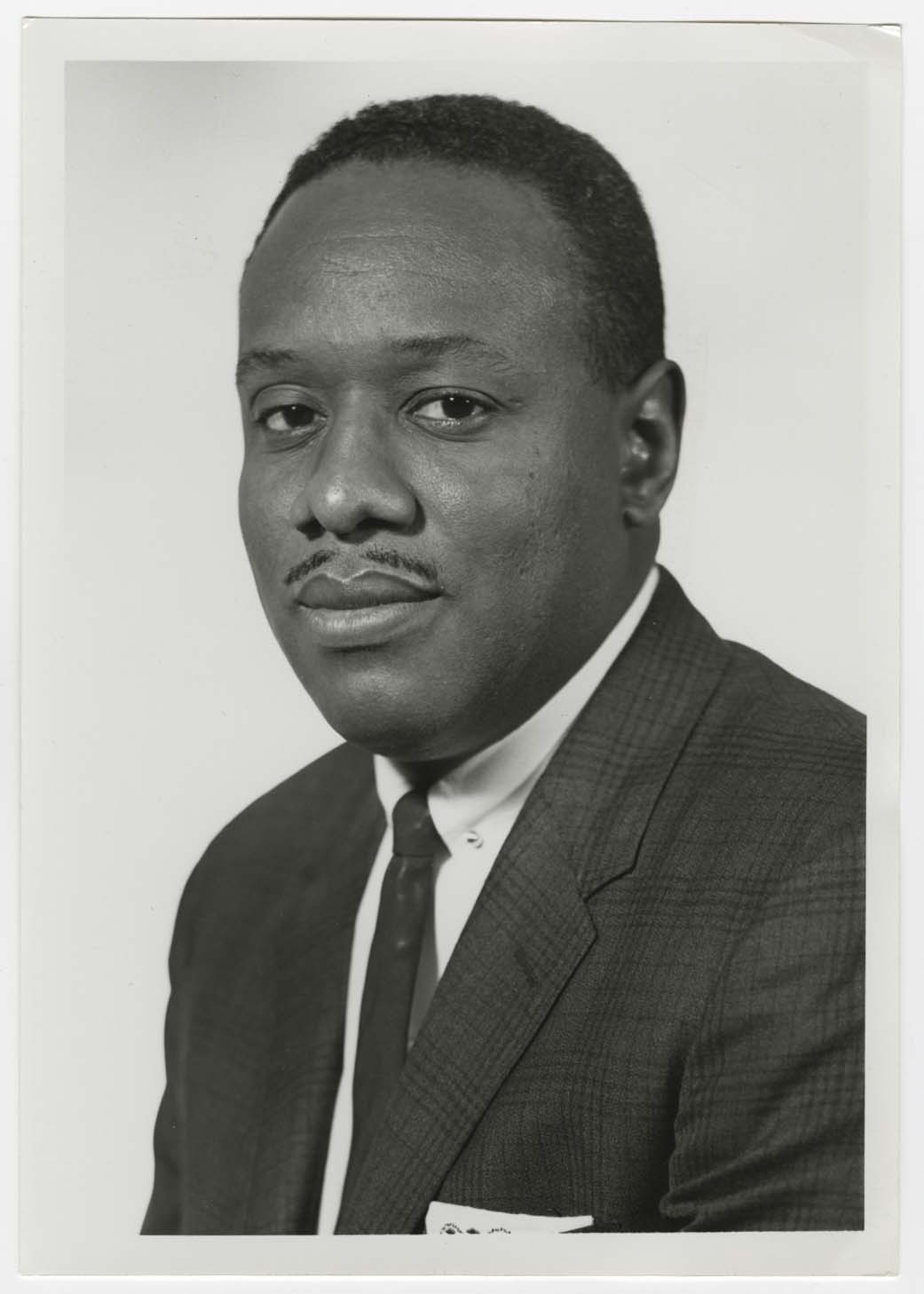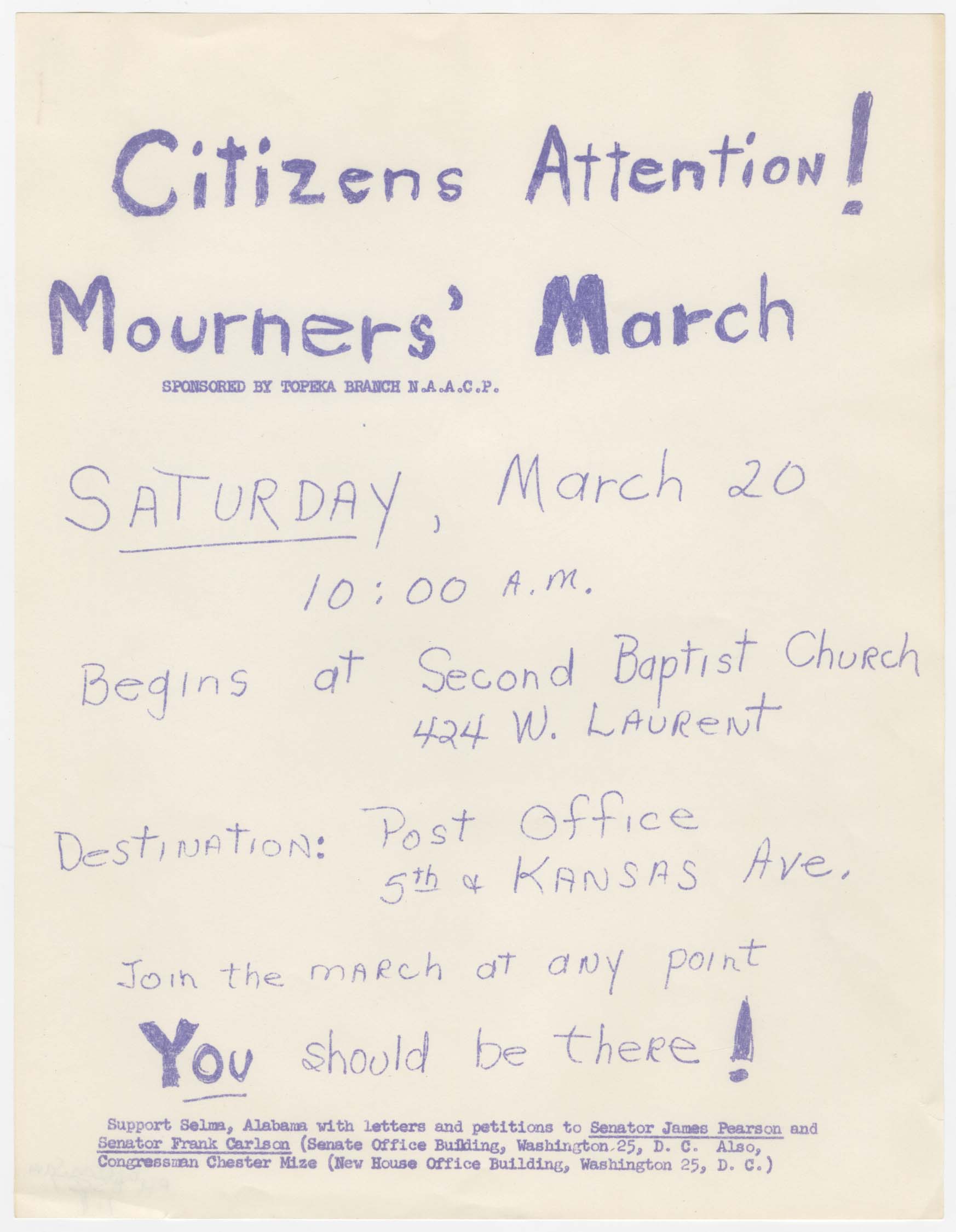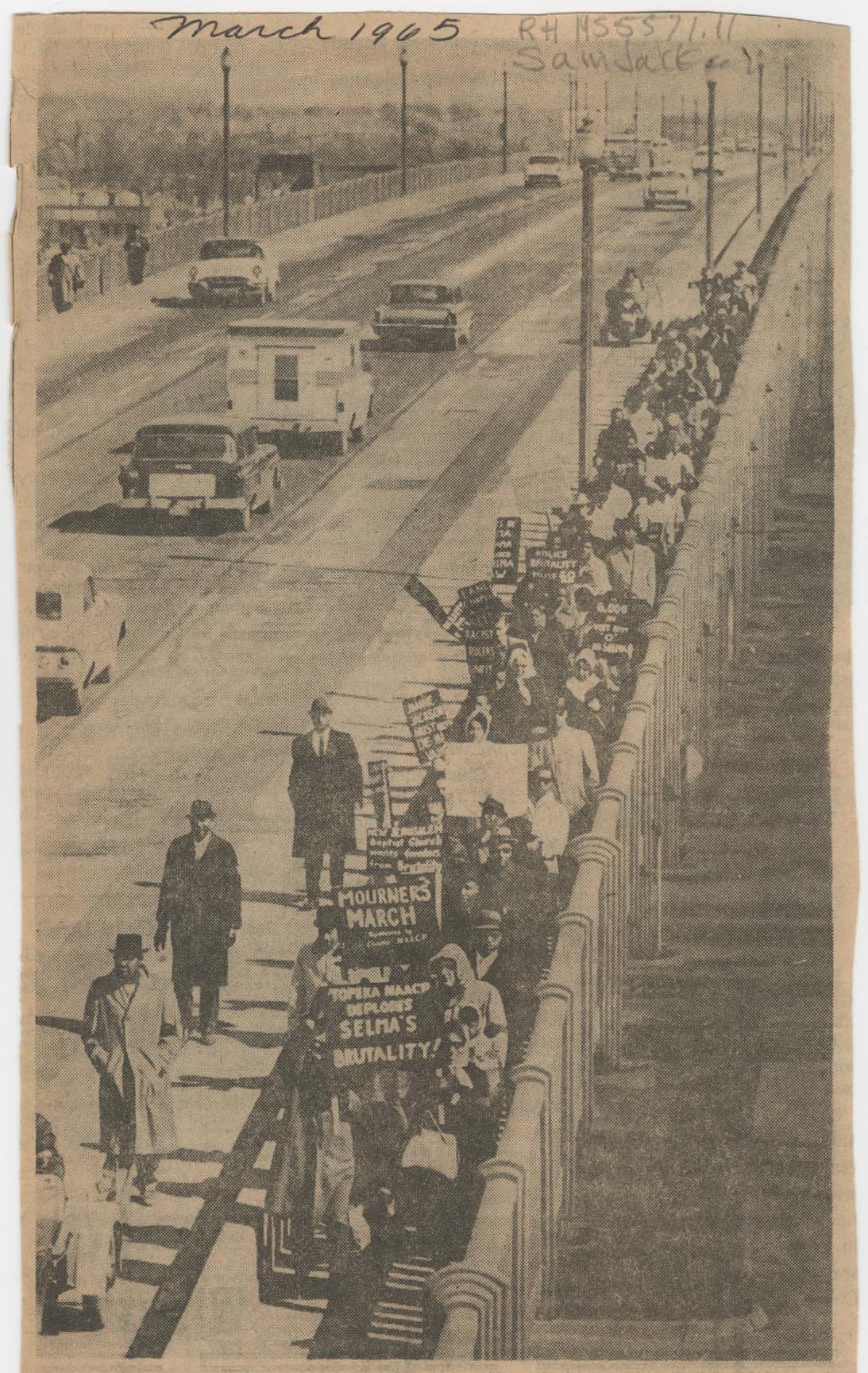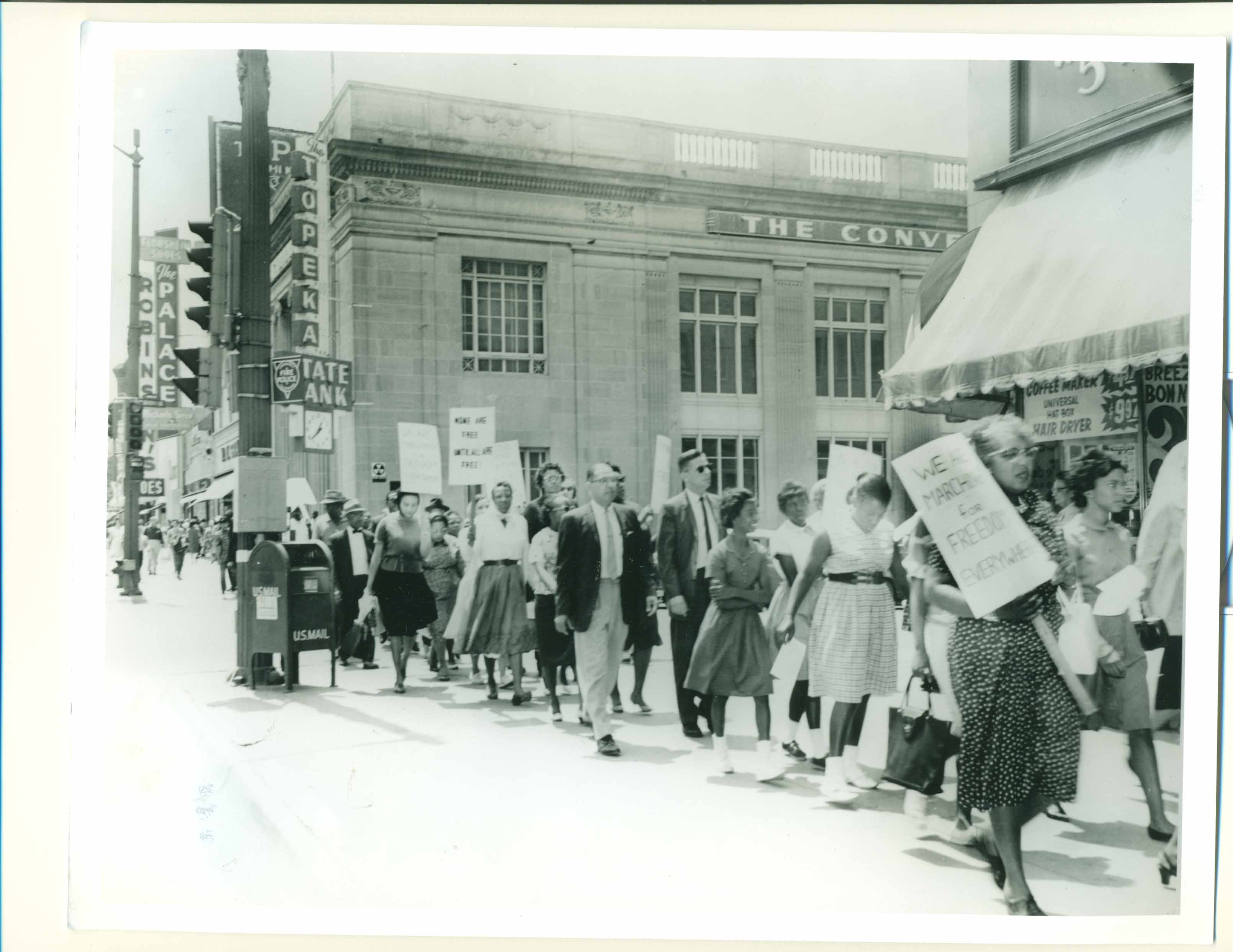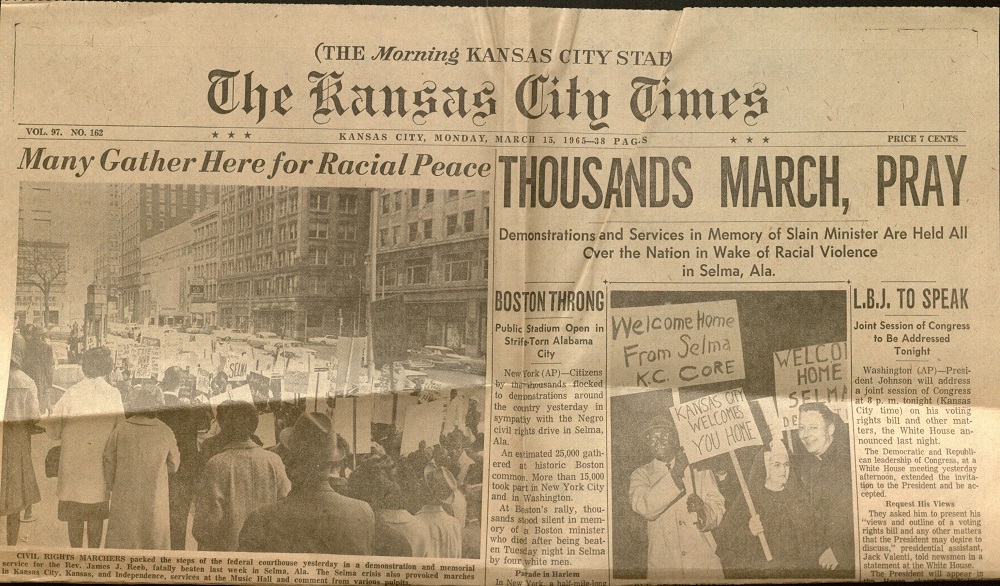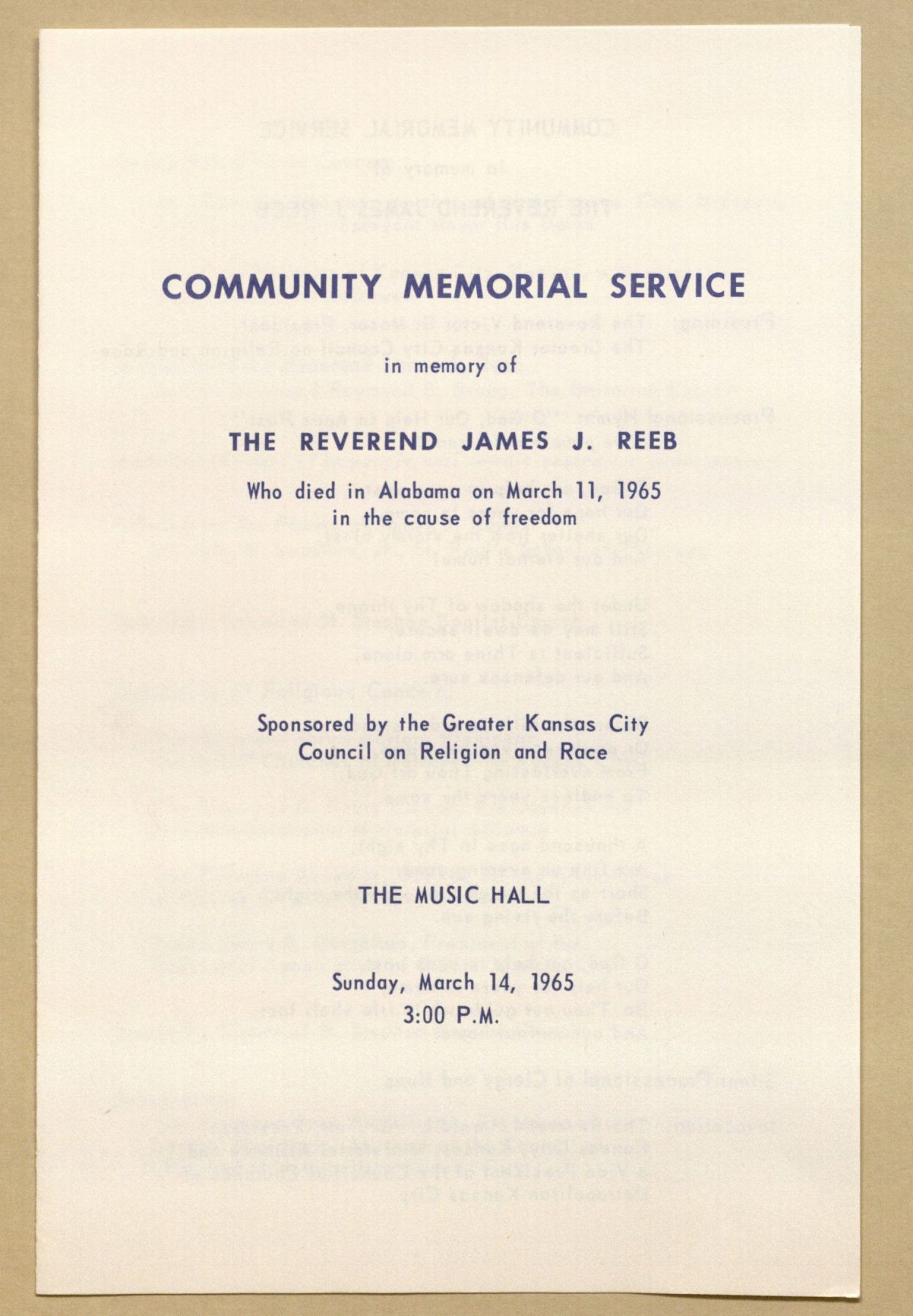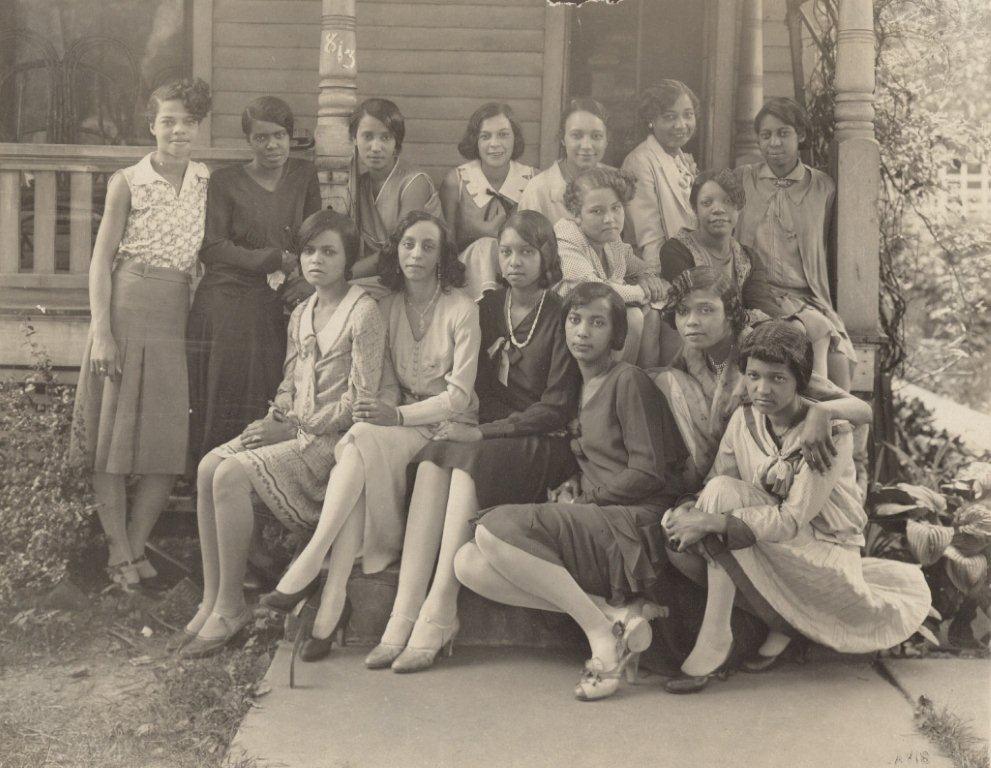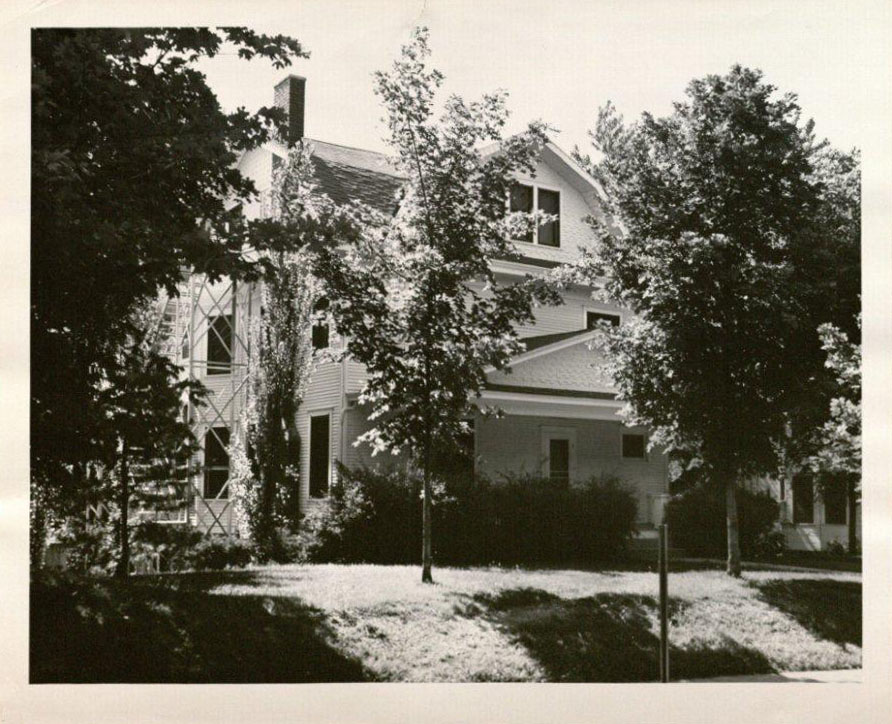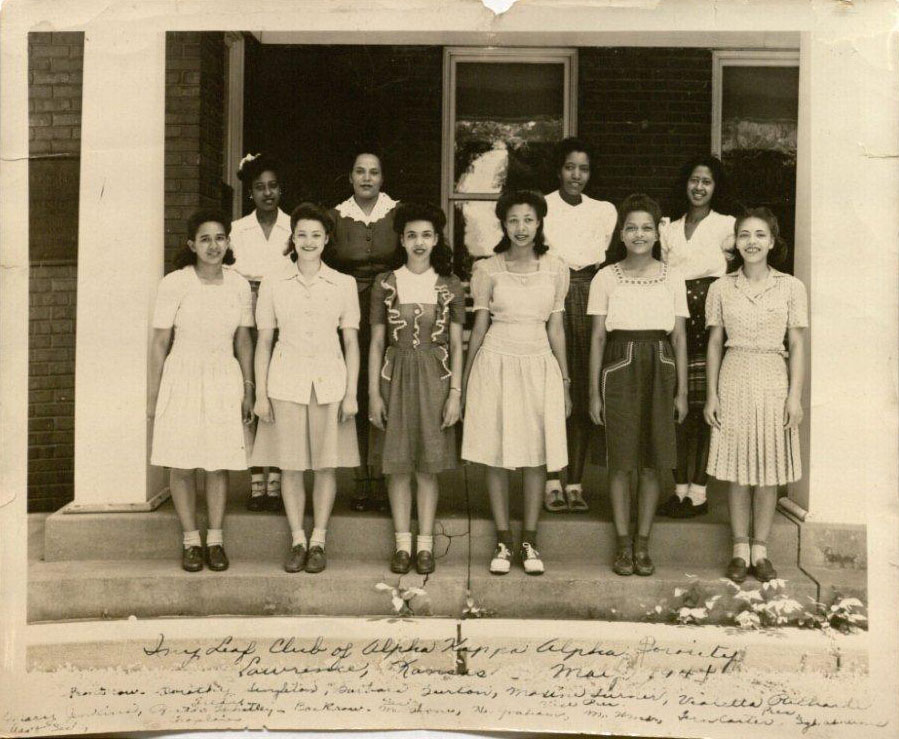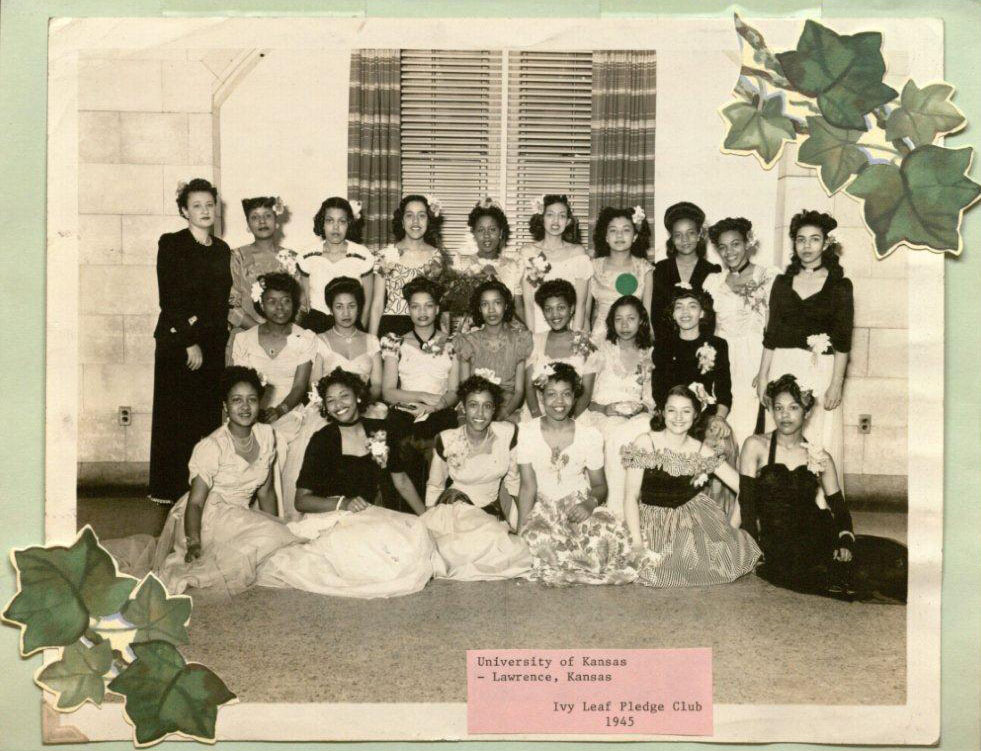Education: The Mightiest Weapon
March 22nd, 2017Spencer’s current exhibit Education: The Mightiest Weapon is free and open to the public in the Spencer Exhibit Space through May 18, 2017, during the library’s regular business hours.
Field Archivist and Curator Deborah Dandridge with
her student assistant Arielle Swopes. Click image to enlarge.
“While white folks have been wrangling as to whether colored children should be admitted into the public schools,” reported the Evening Dispatch newspaper in 1859, “Mrs. Burnham, a colored woman, has been teaching a school for Negro children on the corner of Potawatomie and Third streets,” in Leavenworth, Kansas. Like Mrs. Burnham, African American settlers in Kansas found a variety of ways to pursue their cultural tradition of placing a high value on formal education, despite laws and practices that denied them equal access to all public schools.
Education: The Mightiest Weapon highlights the public school experiences of African Americans governed by the 1879 Kansas law allowing public school boards in cities of 10,000 or more to decide whether to establish racially segregated grade schools. Except for special legislation passed in 1905 for Kansas City, Kansas, Kansas law prohibited racially segregated public high schools. It features schools in Kansas’ urban and rural areas, African American state supported schools, and the 1951 U.S. District Court case in the landmark 1954 Brown v. Topeka Board of Education U.S. Supreme Court decision.
Setting up for the exhibit. Click image to enlarge.
Zachary Lassiter, a Public Services student at Spencer Library
majoring in history, with Arielle Swopes. Click image to enlarge.
Statement from student assistant Arielle Swopes
In 2014 I started at KU as a Behavioral Neuroscience major, and began working as a student assistant in Kenneth Spencer Research Library. Working on the current exhibit, Education: The Mightiest Weapon, has given me even greater insight about how enduring and adaptable African Americans have been. For this exhibit I’ve had access to hundreds of pictures and been able to read letters, petitions, newspapers, and posters that all show the daily life and struggles of African Americans from the 1890s to the 1970s. From all of these materials it is easy to see the determination that these people had to always find a way to persevere.
Sumner High School Second Orchestra,
Kansas City, Kansas, 1918. Sumner High School Collection.
Call Number: RH MS-P 1137. Click image to enlarge.
A letter from the city’s African American community to the
Lawrence, Kansas, School Board opposing the Board’s
suggested plan to place all African American elementary students
in Lincoln School in North Lawrence, November 12, 1942.
USD 497 (Lawrence School District) Collection.
Call Number: RH MS 1255. Click image to enlarge.
Eighth grade graduating class of Monroe School, Topeka, Kansas, 1932.
Cooper-Sheppard-Cox Family Collection. Call Number: RH MS-P 576.
Click image to enlarge.
Arielle Swopes
Spencer Research Library Student Assistant
African American Experience Collections
Deborah Dandridge
Field Archivist and Curator
African American Experience Collections

